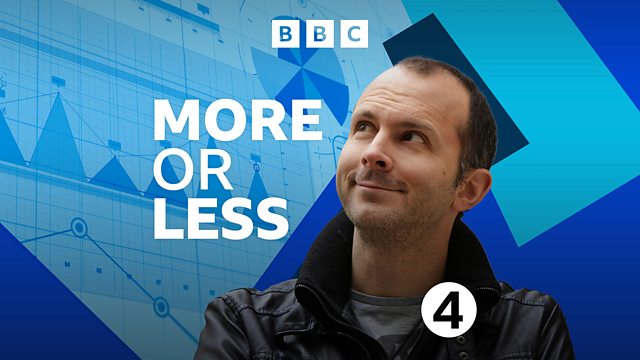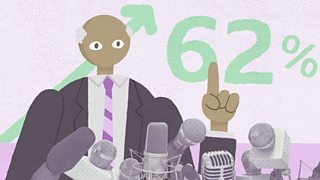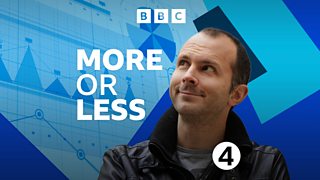Forecasting the Future - More Credit Crunch Maths- Lake Wobegon Effect - Average Wage
Tim Harford questions ability of professional forecasters at predicting the future. Plus, why so many of us tend to think we are above average wage.
Forecasting the Future
2008 contained so many surprises that any self-respecting forecaster might want to take care before venturing a confident prognostication. So are expert forecasts ever any good?
Tim speaks to Philip Tetlock, a professor of psychology in the University of California, Berkeley. Professional forecasters, according to Professor Tetlock, are only marginally better than monkeys at predicting the future.
More Credit Crunch Maths
Financial mathematics guru Paul Wilmott continues with his series explaining how mathematical blunders contributed to the credit crunch. Financial traders are taught that the way to maximise profit and minimise risk is to diversify.
So why did so many end up doing the same trades? The answer, according to Paul, might lie in the maths of the bonus system.
The Lake Wobegon Effect
Why do most parents think their child is in the top 20% for academic ability? Perhaps it is the same reason that most drivers think they are in the top 20% for safety.
Ruth Alexander investigates the power of the "above average effect", our tendency to overestimate our relative performance when it comes to desirable qualities and skills.
It is also known as the Lake Wobegon effect after the fictional community "where all the women are strong, all the men are good looking and all the children are above average".
What is an Average Wage?
Listener Bill MacDonald has heard the average wage in the UK described as around Β£24,000.
He thought that seemed a bit high and asked us to find out how it is calculated and whether it fairly reflects typical earnings.
Our reporter Oliver Hawkins explains the importance of selecting the most appropriate measure of the average.
Last on
Broadcasts
- Fri 2 Jan 2009 13:30Βι¶ΉΤΌΕΔ Radio 4
- Sun 4 Jan 2009 20:00Βι¶ΉΤΌΕΔ Radio 4
Just how reliable is our intuition? Find out with The Open University
OU Connect: Put your brain to the test with our new mind-bending probability problems!



